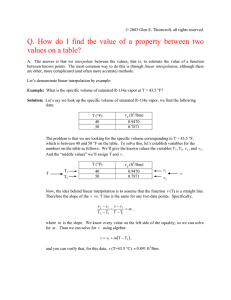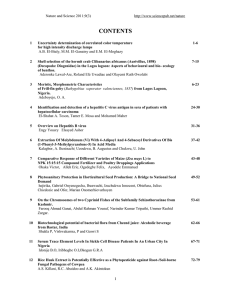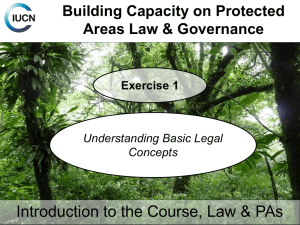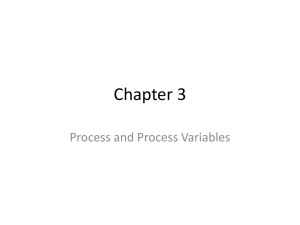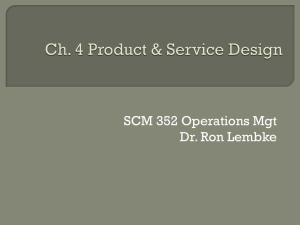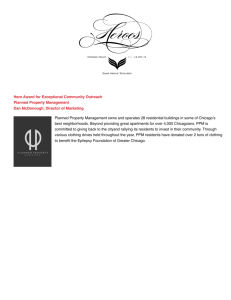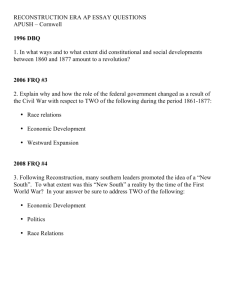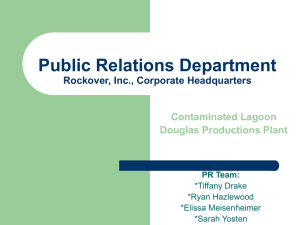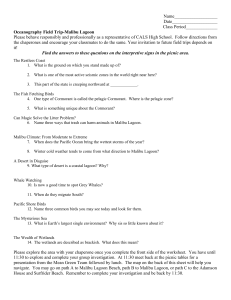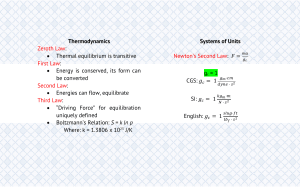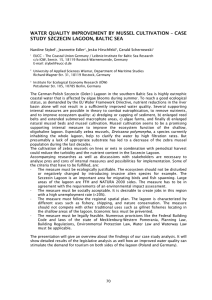Ch. 2a Notes
advertisement
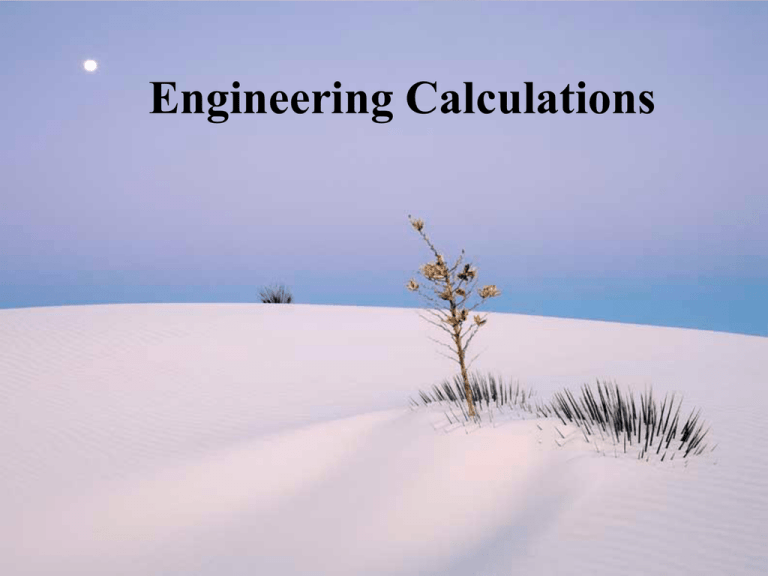
Engineering Calculations Engineering Dimensions and Units Density D = M/V M = mass V = volume Water: 1 x 103 kg/m3 or 1 g/cm3 or 62.4 lbm/ft3 Concentration CA MA VA VB CA = concentration of A MA = mass of material A VA = volume of material A VB = volume of material B Concentration Parts per million is a common measure of Concentration (ppm). It is equivalent to mg/L in water since one milliliter of water weighs one gram. 1 mg 0.001 g L 0.001 g 0.001 g 1000 ml 1000 cm 3 1g 1000 g 1 , 000 , 000 g Mass Concentration MA A 100 MA MB Concentration 10,000 mg/L = 10,000 ppm (if D = 1) 10,000 ppm = 1% (by weight) Flow Rate Volumetric flow rate m3/s , ft3/s, gpm, mgd Mass (gravimetric) flow rate kg/s, lbm/s Realted since mass = density x volume (QM = QV D) Mass flow of a component Qma = CA x QV(A+B) Example: A wastewater treatment plant discharges a flow of 1.5 m3/s at a solids concentration of 20 mg/L. How much solids is the plant discharging each day? Qma= 20 mg/L X (1 x 10-6 kg/mg) x (1.5 m3/s x 103 L/m3 x 86,400 s/day) = 2592 kg/day A useful conversion Volumetric flow rate Concentration Mass flow rate = in million gallons x x 8.34 in pound per day in mg/L per day, mgd Residence Time Also referred to as detention time or retention time The average amount of time it takes a particle of fluid spends in a container it is flowing through or you can think of it as the amount of time it takes to fill the container. t = V/Q Example: A lagoon has a volume of 1500 m3 amd the flow into the lagoon is 3 m3/hour. What is the residence time in this lagoon? t- = 1500/3 = 500 hours Approximations in Calculations 1. Define the problem 2. Introduce simplifying assumptions 3. Calculate answer 4. Check the answer Significant Figures Significant figures are those that transfer information based on the value of the digit
